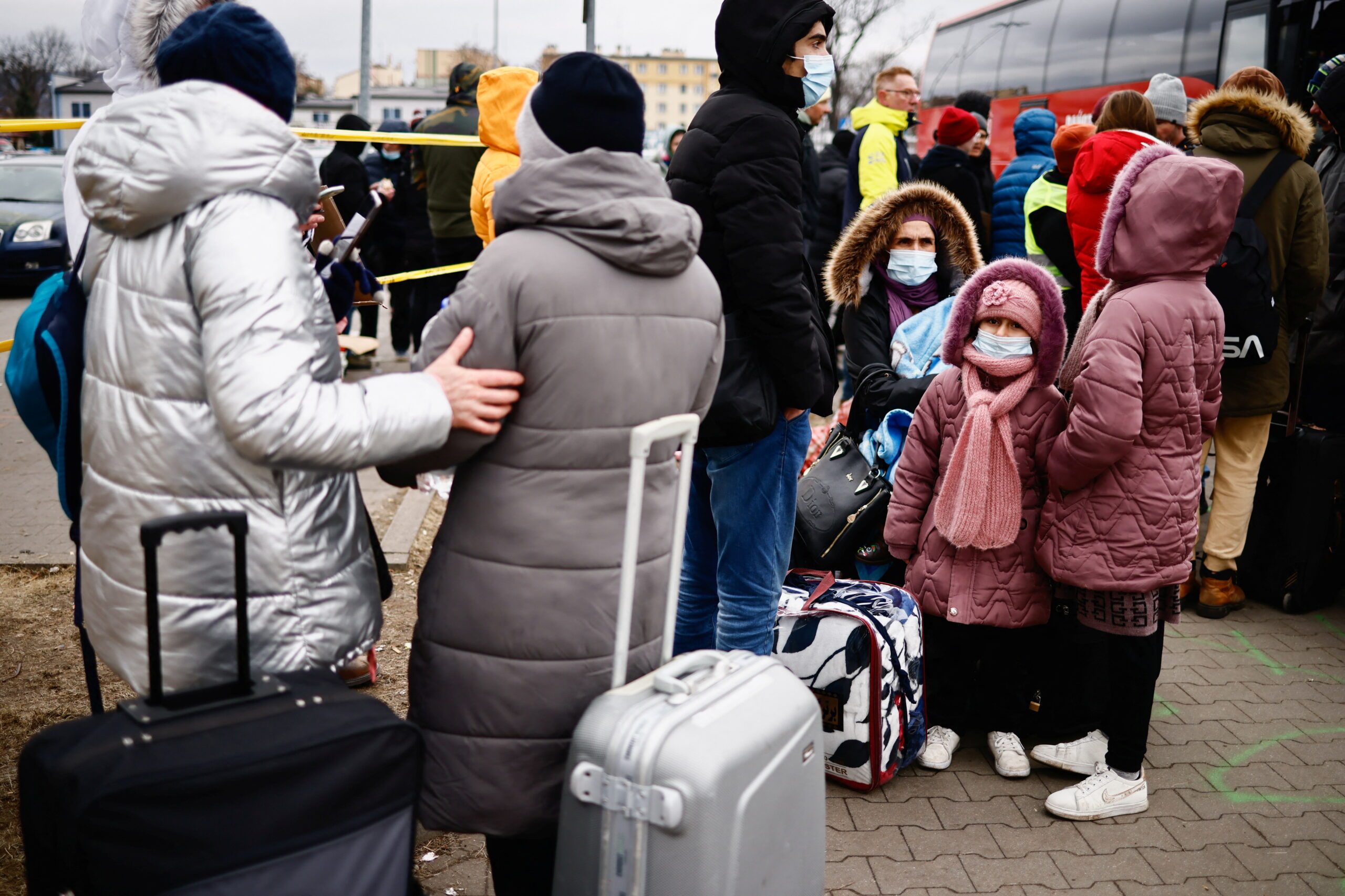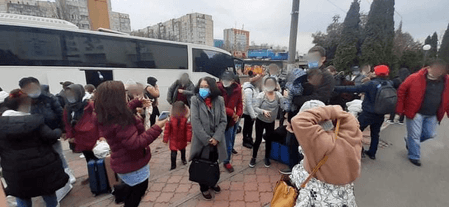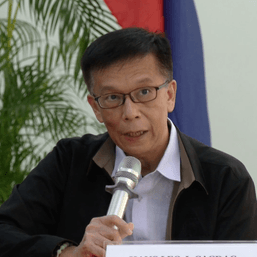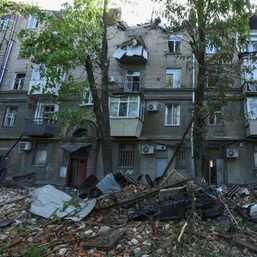SUMMARY
This is AI generated summarization, which may have errors. For context, always refer to the full article.

MANILA, Philippines – Filipinas married to Ukrainians are facing a “heart-wrenching” decision on whether to stay in the unstable country to keep their families together, or go home to the Philippines and leave their husbands behind.
In a town hall for overseas Filipino workers (OFWs) on Monday, February 28, Philippine Ambassador to Poland Leah Ruiz said that the Philippine embassy easily gave humanitarian visas to Ukrainian wives of Filipinos to flee to the Philippines, but ran into issues doing the same for Ukrainian husbands.
“So ‘yung may mga lalaki na spouses, the dilemma [was] aalis ba sila or stay with the husbands?” said Ruiz. (So for those with the male spouses, the dilemma was are they going to leave or stay with the husbands?)
“They had to make a very, very difficult and heart-wrenching decision. We can only just sympathize with them. Some of them really decided to stay,” she added.
According to Ruiz, there were other Filipinas who chose to leave on a repatriation flight with their children fathered by Ukrainians.
With the ongoing unrest due to Russia’s invasion of Ukraine, Ukrainian President Volodymyr Zelenskiy declared martial law in the country on Thursday, February 24. Under martial law, Ukrainian men aged 18 to 60 are forbidden to leave the country in case they are needed for its defense.
Ruiz said that just before military rule was declared, they were able to issue a “fast-tracked” visa to a Filipina’s Ukranian spouse.
Still, the Philippine embassy in Poland asked the staying Filipinas to keep in touch so that Philippine officials could help them should they ultimately decide to leave without their husbands.
There are exceptions to the ban on Ukrainian men leaving the country, such as men who take care of three or more children under 18, have a child with disability, and single fathers.
Adopters, guardians, or “whose immediate family members perished or disappeared during the anti-terrorist operation” are also exempted.
According to Department of Foreign Affairs numbers as of Monday, six Filipinos arrived in the Philippines from Ukraine in the previous week. Thirteen evacuated to Poland with Foreign Secretary Teodoro Locsin Jr., and eight seafarers from MV S. Breeze are “at the border.”
Meanwhile, through their own means, six Filipinos went to Moldova, four went to Romania, and eight went to Hungary.
The war in Ukraine has caused thousands of people to flee, with a disproportionate number of women and children among the throng. By Sunday afternoon, February 27, an unmoving line of cars, buses and trucks stretched for 35 kilometers from the border crossing at Shehyni, all packed with people and belongings, all waiting their turn to squeeze through the overburdened border checkpoint to Poland.
Hundreds of other people headed for the border on foot, trudging along the highway’s trash-strewn verge in sub-zero temperatures with children, pets, and whatever possessions they had the strength left to carry. – with reports from Reuters/Rappler.com
Add a comment
How does this make you feel?











There are no comments yet. Add your comment to start the conversation.